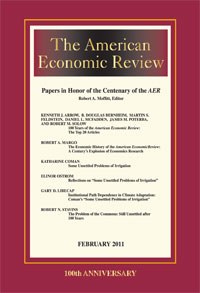
Fischer, C. and Fox, \AlanK.\ (2011). The role of trade and competitiveness measures in US climate policy American Economic Review, 101(3):258--262.
-
Affiliated authorCarolyn Fischer
-
Publication year2011
-
JournalAmerican Economic Review
We review the proposed measures for addressing competitiveness and carbon leakage concerns in recent US climate policy legislation. For eligible energy-intensive, tradeexposed sectors, output-based rebates would initially dampen cost increases; later, border adjustments would ensure that imports face comparable cost burdens. Both measures can in theory enhance the economic efficiency of carbon reduction efforts, but both pose some interesting economic and practical trade-offs. This paper discusses our recent research into the welfare and carbon leakage effects of using output-based allocation and trade measures in conjunction with climate policies.